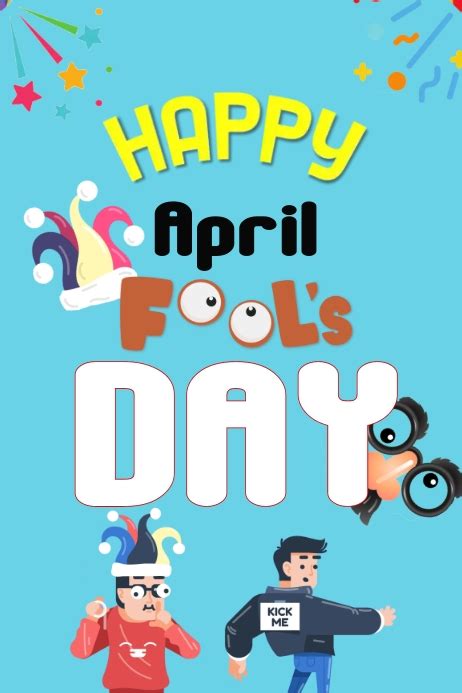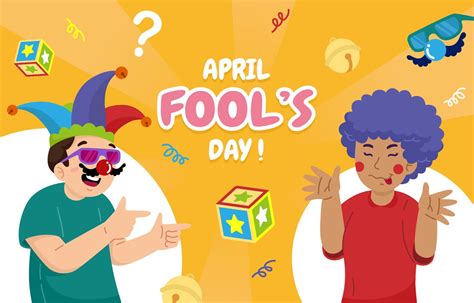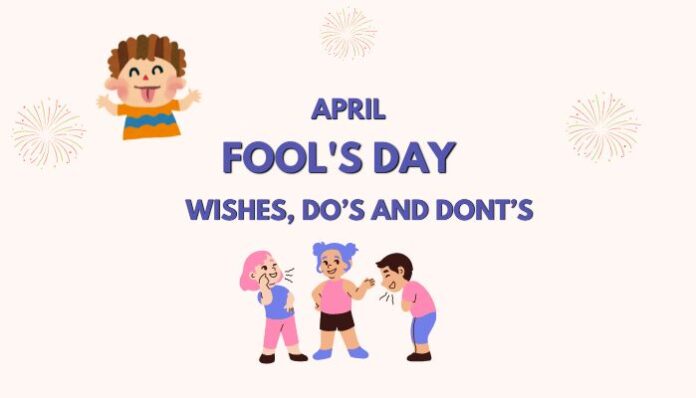April Fools’ Day is often associated with lighthearted pranks and playful tricks, but beneath its humorous surface lies a rich tapestry of cultural and spiritual significance. This day, celebrated in various forms across the globe, offers more than just an opportunity for mischief—it invites reflection on the roles of humor and folly in our spiritual lives. By exploring the historical origins, cultural variations, and symbolic meanings behind April Fools’ traditions, we uncover a deeper connection between laughter, wisdom, and spirituality. Join us as we delve into how this whimsical day can be a meaningful part of your spiritual journey.
Embark on a detailed exploration of this topic with iigoi.com
1. Historical Origins of April Fools’ Day
The origins of April Fools’ Day are shrouded in mystery, with various theories attempting to explain its beginnings. One popular belief traces the celebration back to 16th-century France, when the country shifted from the Julian calendar to the Gregorian calendar, as called for by the Council of Trent in 1582. In the Julian calendar, the new year began with the spring equinox around April 1st. Those who continued to celebrate the new year on April 1st, rather than January 1st, were labeled “fools” and were often the targets of jokes and pranks.
Another theory suggests that April Fools’ Day is linked to ancient Roman festivals, such as Hilaria, celebrated at the end of March by followers of the cult of Cybele. During Hilaria, people would dress in disguises and mock fellow citizens, including magistrates, reflecting the playful and subversive spirit that characterizes April Fools’ Day today.
Additionally, some scholars connect April Fools’ Day to the change of seasons, particularly the unpredictable nature of spring weather, which can fool those who anticipate more consistent conditions. This notion of being tricked by nature may have evolved into the practice of playing pranks on others.
Regardless of its exact origins, April Fools’ Day has endured as a day for light-hearted fun, celebrated across cultures and infused with deeper symbolic meanings.

2. Cultural Variations and Celebrations
April Fools’ Day is celebrated worldwide, with each culture adding its unique twist to the tradition of pranks and playful deception. In France, where the day is known as “Poisson d’Avril” or “April Fish,” children and adults alike tape paper fish to each other’s backs as a prank, symbolizing a “fool” who is easily caught. In Scotland, April Fools’ Day is known as “Hunt the Gowk Day,” where the word “gowk” refers to a cuckoo bird, a symbol of foolishness. The prank involves sending someone on a wild goose chase with a fake message.
In many Spanish-speaking countries, a similar day of pranks, known as “Día de los Santos Inocentes” (Day of the Holy Innocents), is celebrated on December 28th. The day is marked by practical jokes and hoaxes, with pranksters often shouting “Inocente!” to indicate the joke.
In India, the festival of Holi shares some playful similarities, as participants throw colored powder at each other, blending joy and lightheartedness in a celebration of spring’s arrival. These diverse celebrations highlight the universal appeal of humor and the joy of shared laughter across cultures.

3. The Role of Humor and Pranks in Spiritual Practices
Humor and pranks have long been recognized as valuable tools in spiritual practices across various traditions. In many cultures, laughter is seen as a way to transcend the mundane, offering a glimpse into the divine. Humor can serve as a spiritual practice by lightening the burdens of life, fostering a sense of community, and breaking down barriers between individuals.
For example, in Zen Buddhism, the use of paradoxical statements, known as koans, often carries a humorous element that challenges conventional thinking and invites deeper reflection. The unexpected twists in these koans can lead to moments of enlightenment, where the absurdity of the human condition is revealed in a liberating way.
Similarly, in the Sufi tradition, humor is employed to convey spiritual truths. The tales of Mulla Nasruddin, a beloved Sufi figure, are filled with wit and irony, illustrating profound lessons through seemingly simple and humorous stories. These tales remind followers that spiritual wisdom often comes in unexpected forms and that laughter can be a path to understanding.
On April Fools’ Day, the act of pranking can be seen as a playful expression of these spiritual principles. By embracing humor, we open ourselves to new perspectives, challenge our assumptions, and connect with the deeper, often hidden, meanings of life.

4. Symbolism and Deeper Meanings Behind April Fools’ Traditions
Humor and pranks have long been recognized as valuable tools in spiritual practices across various traditions. In many cultures, laughter is seen as a way to transcend the mundane, offering a glimpse into the divine. Humor can serve as a spiritual practice by lightening the burdens of life, fostering a sense of community, and breaking down barriers between individuals.
For example, in Zen Buddhism, the use of paradoxical statements, known as koans, often carries a humorous element that challenges conventional thinking and invites deeper reflection. The unexpected twists in these koans can lead to moments of enlightenment, where the absurdity of the human condition is revealed in a liberating way.
Similarly, in the Sufi tradition, humor is employed to convey spiritual truths. The tales of Mulla Nasruddin, a beloved Sufi figure, are filled with wit and irony, illustrating profound lessons through seemingly simple and humorous stories. These tales remind followers that spiritual wisdom often comes in unexpected forms and that laughter can be a path to understanding.
On April Fools’ Day, the act of pranking can be seen as a playful expression of these spiritual principles. By embracing humor, we open ourselves to new perspectives, challenge our assumptions, and connect with the deeper, often hidden, meanings of life.
5. Examples of Famous Pranks with Spiritual Significance
Throughout history, several pranks have gained fame not only for their humor but also for their deeper spiritual significance. One notable example is the story of the Zen master who, during a serious meditation session, suddenly let out a loud laugh, startling his disciples. The master’s unexpected laughter served as a lesson in spontaneity and the importance of not taking life too seriously, a core teaching in Zen Buddhism.
Another example comes from the Sufi tradition, where the trickster figure Mulla Nasruddin is known for his clever pranks that often contain hidden spiritual messages. In one story, Nasruddin invites people to a feast but serves only small portions, teaching them about the emptiness of worldly desires and the importance of inner fulfillment.
In modern times, some April Fools’ Day pranks have taken on a spiritual tone, such as pranks that encourage mindfulness or self-reflection. These examples illustrate how humor, even in the form of a prank, can carry profound spiritual lessons, encouraging us to look beyond the surface and find meaning in the unexpected.
6. How to Incorporate Spirituality into Your Own April Fools’ Day Celebrations
Incorporating spirituality into your April Fools’ Day celebrations can transform this playful day into a meaningful experience. Start by using humor as a tool for personal growth and reflection. Consider planning pranks that are light-hearted and encourage mindfulness, such as surprising a friend with an unexpected act of kindness or a humorous yet thought-provoking message. This approach can remind both the prankster and the recipient of the importance of staying present and appreciating life’s simple joys.
Another way to infuse spirituality into April Fools’ Day is by engaging in activities that highlight the deeper meanings behind the day’s traditions. Host a gathering where you and your friends share stories or jokes that carry a moral or spiritual lesson, much like the tales of Mulla Nasruddin. This can create a space for laughter and connection while exploring profound truths.
Finally, reflect on the role of humor in your spiritual journey. Use this day to challenge your assumptions, embrace the unexpected, and find joy in the unpredictable nature of life, aligning with the spiritual lessons embedded in the day’s traditions.
April Fools’ Day, while often seen as a day for lighthearted pranks, holds deeper spiritual significance across cultures. By exploring its historical roots, cultural variations, and the role of humor in spiritual practices, we can appreciate how this playful tradition offers opportunities for reflection and connection. Embrace the day with intention, infusing your celebrations with meaning and joy, and discover the spiritual wisdom within the laughter.
iigoi.com
